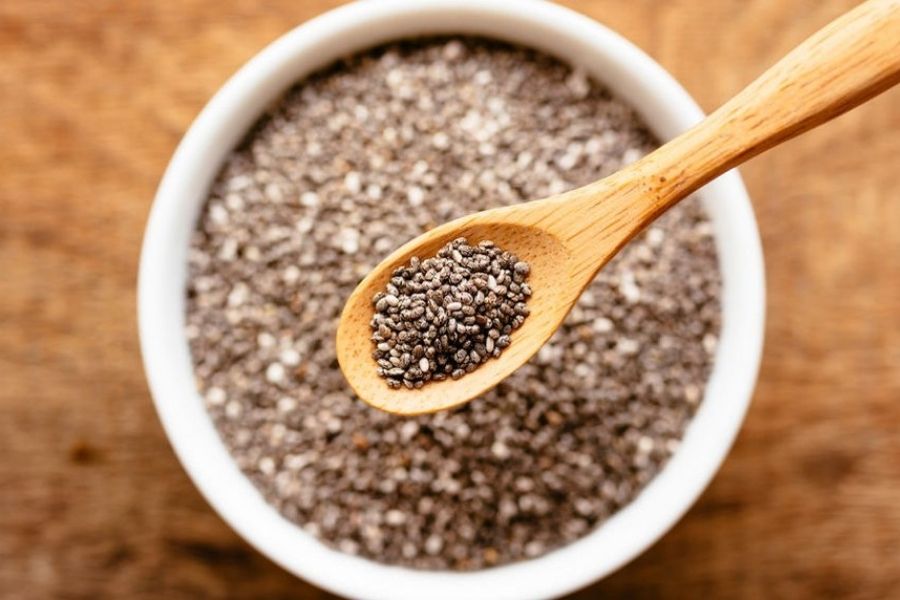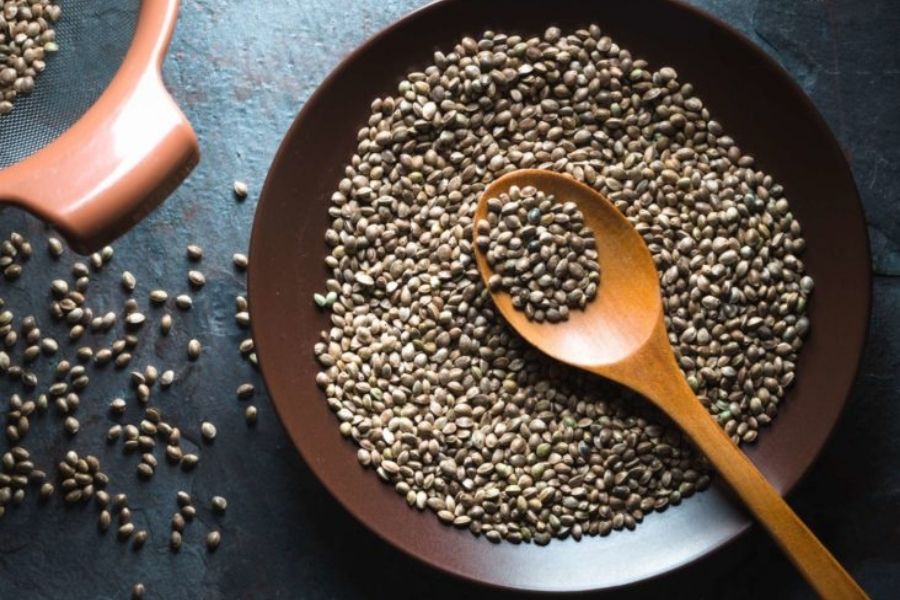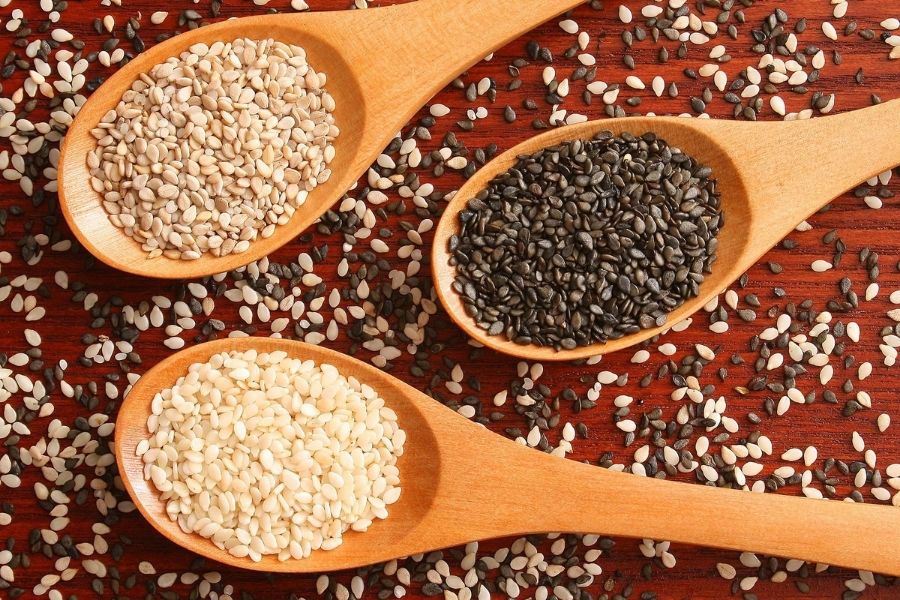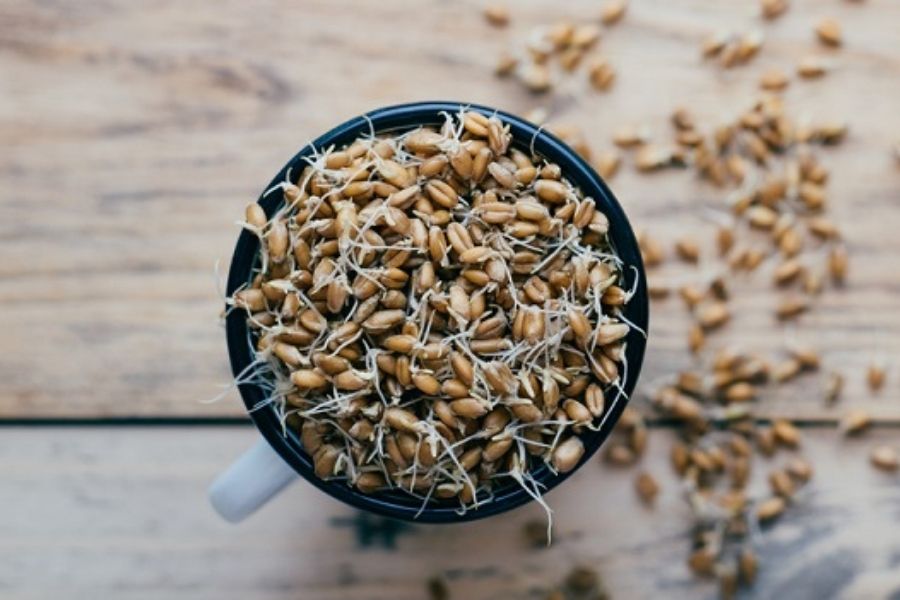Seeds, the small, tiny kernels, are extremely nutritious and work wonderfully in terms of health. Seeds contain decent amounts of essential nutrients: vitamins, minerals, antioxidants, monounsaturated fats, polyunsaturated fats, and fiber. Here are seven super healthy seeds you should eat for a fit body. But why?
These seeds are versatile. If you consume them in a healthy diet, it helps lower blood pressure, bad cholesterol, blood sugar, weight management. They are used in different recipe
Power Packed Seeds You Should Eat
1. Flaxseeds

Flaxseeds are also known as linseeds. These brown, nutty-flavored seeds are a rich source of soluble fiber, omega 3 fatty acids, and polyphenols. Fibers help reduce the appetite, regulate bowel movements and improve digestive health.
Omega 3 fatty acids, mainly alpha-linolenic acid (ALA), benefit the eye, brain, and other heart-related issues. Omega 3 fats are available in the outer shell of the seeds that humans can’t digest; therefore, it is better to consume in the grounded form if they want to raise omega 3 fatty acids.
Proteins, mainly lignans, plant-like forms of estrogen, help prevent cancer and act as antioxidants. It has insoluble fiber content that helps control blood sugar levels. So, diabetic patients can try various dishes to manage glucose levels.
Flaxseeds are harder; thus, take in powder form; otherwise, they won’t be digested and cannot absorb essential nutrients. You can sprinkle the powder into smoothies, shakes, yogurt, oatmeal, or some baked dishes.
2. Chia Seeds

Chia seeds are loaded with iron, folate, calcium, magnesium, omega 3 fatty acids, and fiber—iron and folate help improve hemoglobin level. Calcium and magnesium improve bone and dental health. Omega 3 fatty acids decrease the bad cholesterol in the blood, reducing the chances of cardiac diseases.
Chia seeds benefit the type 2 diabetic patient after a high-carb meal. Also, its minerals mentioned above enhance bone health. A good amount of protein and fibers make you feel fuller for longer, reducing food hunger and cravings and weight loss. Add chia seeds to smoothies, yogurt, salads, or muffin batter for a daily diet.
3. Hemp Seeds

Hemp seeds are incredibly nutritious, mild, nutty-flavored seeds you should eat. Even though hemp and marijuana are both from the same cannabis family, hemp seeds do not affect like marijuana.
The seeds are the richest source of protein. They benefit the health by providing all essential amino acids which the body can’t produce. They contain many minerals, such as potassium, sodium, magnesium, sulfur, iron, and zinc.
The gamma-linolenic content in the seeds reduces the symptoms of PMS and menopause. Also, its soluble and insoluble fiber content improves digestive health.
They have a good ratio of omega 3 and omega 6 fatty acids. Omega 3 fatty acids improve heart health, and their anti-inflammatory action treats the symptoms of eczema. Therefore, patients with eczema prefer to use hemp seed oil supplements for treating itchiness and skin dryness.
4. Sunflower Seeds

Sunflower seeds have a decent nutrient profile; they have a good amount of protein, monounsaturated fats, and vitamin E. Vitamin E neutralizes free radicals effect, preventing aging. Anti-inflammatory properties reduce the symptoms of asthma, osteoarthritis, and rheumatoid arthritis. The fiber content and vitamin E reduce the possibilities of colon cancer.
Sunflower seeds lower the risk of heart disease in middle-aged and older people. They have the role of decreasing the level of c reactive protein cause by various inflammations.
Seeds make the skin glowing and youthful by preventing wrinkles and fine lines. The essential fatty acids like palmitic oleic and linoleic acid encourage collagen formation, which gives elasticity. They contain the minerals such as copper, zinc, and magnesium that enhance bone mineral density. The highest amount of monounsaturated fats and omega 6 fats reduce both good and bad cholesterol.
5. Pumpkin Seeds

Pumpkin seeds are the most commonly consumed seeds and contain a wide range of nutrients. They have a high amount of phosphorus, monounsaturated fats, and omega 6 fats. Phytosterols (plant compounds present in pumpkin seeds) help lower blood cholesterol levels. Also, they help to treat bladder stones by decreasing the amount of calcium in the urine.
Adequate consumption of pumpkin seeds decreases breast cancer chances, and its oil improves prostate cancer symptoms in men and some urinary disorders. Seeds have antioxidants (carotenoids and vitamin E), preventing premature aging and chronic diseases.
Contain the zinc supports male fertility by improving sperm quality as zinc deficiency may cause infertility. Also, pumpkin seeds possess the potential antifungal and antiviral properties to cure certain infections. In women, these seeds help relieve the menopause symptoms.
6. Sesame Seeds

Sesame seeds are the most common and versatile household ingredients in Asia. And like other seeds, it has a wide range of nutrients.
They have a good amount of nutrients: lignans like sesamin. Sesamin gets converted into another type of lignin called enterolactone. Enterolactone acts like the hormone estrogen and lower than normal lignan levels responsible for heart disease and breast cancer. Also, these seeds help to cure inflammation symptoms, oxidative stress, and osteoarthritis.
Sesame seeds are the best seeds you should eat for the skin. They are rich in zinc, giving the skin elasticity and treating other skin-related problems. These seeds make the digestive system healthier due to their fibrous content. It also has magnesium that helps treat asthma and other respiratory issues by preventing airway spasms.
7. Wheat Germ

Wheat germ is another best option of healthy seeds you should eat. They are a nutritional powerhouse for they contain fiber, protein, iron, and vitamin B. The fibrous content of the seeds helps to prevent constipation and manage appetite. Wheat germ has a high amount of soluble fibers; it slows down the secretion of bile acids which is the cause of gallstones.
Wheat germ regulates blood sugar because of its low glycemic index. Therefore, the diabetic patient can replace the rice with wheat germ to overcome the blood glucose problem. Wheat germ is also excellent for some chronic diseases such as osteoporosis, Alzheimer’s disease, and cardiac diseases and reduces breast cancer risk.
Store them in an airtight container in the freezer as its polyunsaturated fats content quickly turn it rancid. You can make a healthy addition to smoothies, baking, and cooking recipes.
Read Also: Can You Overdose On Antioxidants?








1 thought on “7 Power Packed Seeds You Should Eat”